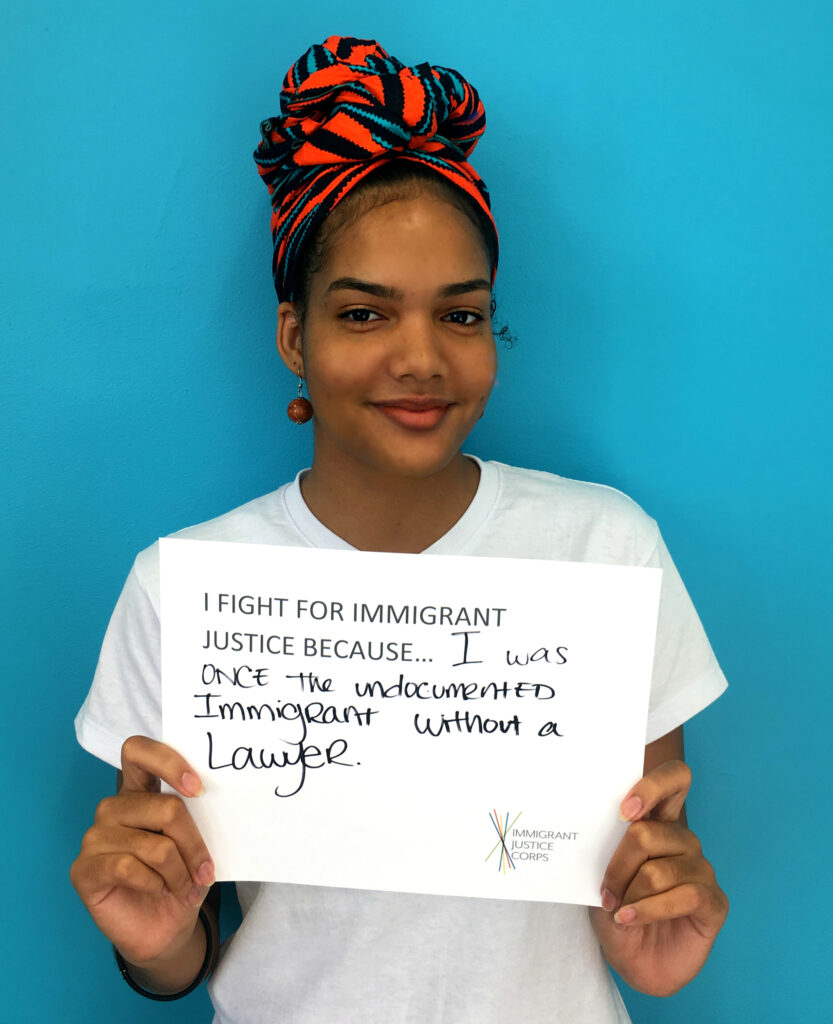Representation, no matter what
For our clients seeking relief, immigration court is an intimidating and often times chaotic experience. No immigrant or their family should ever have to face this process alone and without representation.
For the past eighteen months, 2017 Justice Fellow Ryan Clough has represented parents with children detained at the Karnes Family Detention Center in San Antonio. Ryan’s commitment to representing vulnerable and marginalized immigrants led him to literally step in at a moments notice. Ryan shares in his own words a recent experience that, for him, represents what IJC is all about.
A few weeks ago I went to court to deliver a filing to a coworker before his hearing. I was dressed in plain clothes that day, not a suit as I typically would wear for court hearings. I made the delivery and, as I was leaving the court, I noticed that another courtroom was holding ‘fear review’ hearings from the Karnes Detention Center that my organization, RAICES, serves. In a fear review hearing, a judge decides whether to overturn a negative credible fear finding by an asylum officer and allow a person to seek asylum in removal proceedings or deport the person to their home country.
I saw on the docket outside the courtroom door that one of the women was unrepresented. We had received no notice of her hearing, and I knew it was likely the woman herself had received little notice of it. Many judges in the San Antonio detained court do not permit a person in expedited removal to move her court date to find representation.
As the pro bono legal service provider at Karnes, RAICES has a universal defense model akin to public defenders. That means when unrepresented adult women at Karnes are before the judge, we are too alongside them.
I walked into the courtroom and, as is typical for these hearings, the judge was the only person physically in the room. The woman, an indigenous Qeqchi-speaker from Guatemala, was being broadcast via video-conferencing from the detention center to the courtroom’s TV. The judge had a Qeqchi interpreter on his courtroom phone. Through the interpreter, she requested I represent her.
However, the judge would not allow us to reschedule the hearing and gave me roughly 10 minutes to consult the woman in private about her case.
He would also not allow me to use the Qeqchi-interpreter already on the phone, “she speaks Spanish just fine,” he said. As we started the hearing, the judge asked me to close my laptop, where I had made my hurried notes about the case. The woman testified to a man who threatened to kill her if she didn’t pay him, and who had tried to rape her on multiple occasions. She reported him to the mayor who accused her of lying.
After her testimony, I spoke to the immigration judge about the merits of her case. The judge decided she had a ‘reasonable fear’ and could continue her case, but not without saying afterward off the record “she’s going to have a very tough case you know.”
IJC to me has meant navigating ever-changing laws and policies, detention protocols, and judges. It has meant spreading radical compassion to clients, to colleagues, and even to those who are part of the deportation machine. But more than anything, it has meant just showing up for people. I feel this experience in court captured that simple but important tenet of IJC.
